Data Science Careers: In-Demand Skills and Job Prospects
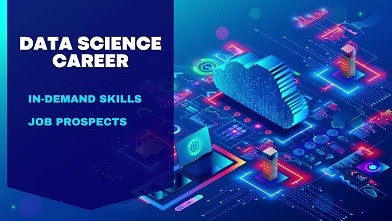
Data science is in high demand due to its pivotal role in extracting valuable insights from the vast and complex datasets that organizations generate.
In the current digital era, there is a pressing demand for people who can harness this data to drive business decisions. Companies across industries recognize data as a strategic asset, and data scientists are the key to unlocking its potential.
Due to this, The market for data analytics was calculated to be worth $24.63 billion in 2021 and is expected to expand by 25% between 2021 to 2030.
Why is data science a demanding career path?
Data science is versatile and applicable across diverse domains. From finance and healthcare to marketing and e-commerce, data science techniques can be tailored to address various problems, making data scientists indispensable for businesses seeking a competitive edge.
Machine learning and artificial intelligence have flued the demand for data scientists even further. These technologies offer opportunities for automation, predictive analytics, and intelligent applications, all of which rely on data science expertise. As organizations continue to recognize the value of data-driven decision-making, the demand for skilled data scientists is expected to remain strong.
As we have discussed the real demand for data scientists in the current technology and its booming scope in the future, we shall discuss the skills required to become a data scientist in detail.
Foundation for a prospective data scientist:
- A degree is The primary skill required to become a data scientist. Individuals who intend to begin their career in data science must have a master's degree in mathematics, statistics, computer science, and engineering or a Ph.D. in data science. Moreover, they should have a profound understanding of computer science. To begin your career path in data science, you should have a solid educational background in computer science.
- To become a data scientist, you should constantly develop your skills in diverse technologies. Prominently, you should build programming language skills like Python, Java, R, C++, and Hadoop. Along with these skills, you should have an in-depth understanding of NoSQL database technologies like MongoDB, CouchDB, and HBase.
- Data scientists should know Hadoop because it equips them with the tools to navigate and analyze vast amounts of data effectively. They should also be familiar with various tools, including Flume, Pig, Swoop, MapReduce, and Distributed File System. These skills help them advance their career in data science. Moreover, it will be an added advantage if you have cloud computing knowledge like Amazon S3.
- Besides degrees and technical skills, individuals should have good communication skills to translate complex data insights into understandable narratives for non-technical stakeholders. Effective Communication fosters collaboration, enables data-driven decision-making, and addresses ethical considerations. It also enhances the ability to educate and engage with non-experts and facilitates precise project management and feedback processes, ultimately leading to more impactful data science outcomes.
- Data scientists require probability and statistics skills as the foundation of data analysis. These skills enable them to understand uncertainty, make data-driven decisions, and create reliable predictive models. Probability and statistics empower data scientists to extract meaningful insights from data, assess the validity of findings, and quantify risks critical for informed decision-making in a data-driven world.
- Data scientists should possess the "3C's" skill set – Computer Science, Communication, and Domain Knowledge – because it equips them to excel in the multifaceted role of extracting insights from data. Additionally, domain knowledge, whether it's in finance, healthcare, marketing, or any other field, is crucial for framing questions, identifying relevant patterns, and tailoring data-driven solutions that align with industry-specific goals. These three skill sets complement each other, enabling data scientists to tackle complex, real-world problems and deliver meaningful impact across diverse domains.
Job Roles in Data Science
Data Analyst:
A Data Analyst gathers, analyzes, and interprets data to help businesses make decisions. They convert raw data into meaningful insights, detect trends, and produce valuable reports and visualizations to help guide strategy and operations. Data analysts are critical in improving efficiency, recognizing opportunities, and addressing business problems through data-driven methodologies.
Skills required: SQL, R, SAS, Python, and problem-solving.
Data Engineers
Data Engineers design and construct data pipelines, databases, and infrastructure to collect, store, and process data efficiently. They ensure data availability and quality for data scientists, analysts, and other stakeholders in making informed decisions and building data-driven applications.
Skill required: Hive, NoSQL, R, Ruby, Java, C++, and Matlab
Database Administrators
Database Administrators (DBAs) handle and maintain an organization's database systems, assuring data security, integrity, and availability. They enhance database performance, perform backups, and address issues to ensure smooth data operations for multiple applications and users.
Skill required: Database Management, Data Security, Data Backup and Recovery, SQL and Query Optimization, Data Modeling, Database Design, etc.
Machine Learning Engineer
A Machine Learning Engineer develops and deploys machine learning models and algorithms to solve real-world problems and create AI-driven applications.
Skills required: SQL, REST APIs, Java, Python, JS, etc
Data Architect
A Data Architect designs and manages the organization's infrastructure, ensuring data is stored, structured, and accessed efficiently to support business needs and analytics.
Skill required: Data warehousing, data modeling, ETL, Hive, Pig, Spark, etc.
Business Analyst:
A Business Analyst assesses business processes, identifies needs, and analyzes data to recommend improvements and solutions that align with organizational objectives.
Skills required: Data modeling, Data visualization tools, etc.
Here, we have discussed only a few career prospects in data science. Moreover, each career is intertwined with data science and has a unique certification path. The certification path includes machine learning, Business Analyst, etc. After completing the certification course, every individual can get into top companies like Google, Amazon, Microsoft, Apple, IBM, Uber, Salesforce, Walmart, etc.
Tips for Landing a Data Science Job
After completing the certification course, crafting a compelling resume highlighting your skills is essential. Additionally, prepare for interviews by practicing common data science interview questions and showcasing your ability to explain complex concepts clearly.
Data science is more than just a career. So, if you're looking for a career that combines analytical prowess with creativity and innovation, data science might be your perfect fit.
Find a course provider to learn Data Science
Java training | J2EE training | J2EE Jboss training | Apache JMeter trainingTake the next step towards your professional goals in Data Science
Don't hesitate to talk with our course advisor right now
Receive a call
Contact NowMake a call
+1-732-338-7323Take our FREE Skill Assessment Test to discover your strengths and earn a certificate upon completion.
Enroll for the next batch
Data Science-Python-ML-AI-Deep Learning (Hands-on Training)
- Sep 1 2025
- Online
Data Science
- Sep 2 2025
- Online
Data Science-Python-ML-AI-Deep Learning (Hands-on Training)
- Sep 3 2025
- Online
Data Science
- Sep 4 2025
- Online
Data Science-Python-ML-AI-Deep Learning (Hands-on Training)
- Sep 5 2025
- Online
Related blogs on Data Science to learn more

Why Pursue Data Science Training?
Empower your career in a data-driven world. Learn why data science training is crucial for high-demand jobs, informed decisions, and staying ahead with essential skills.
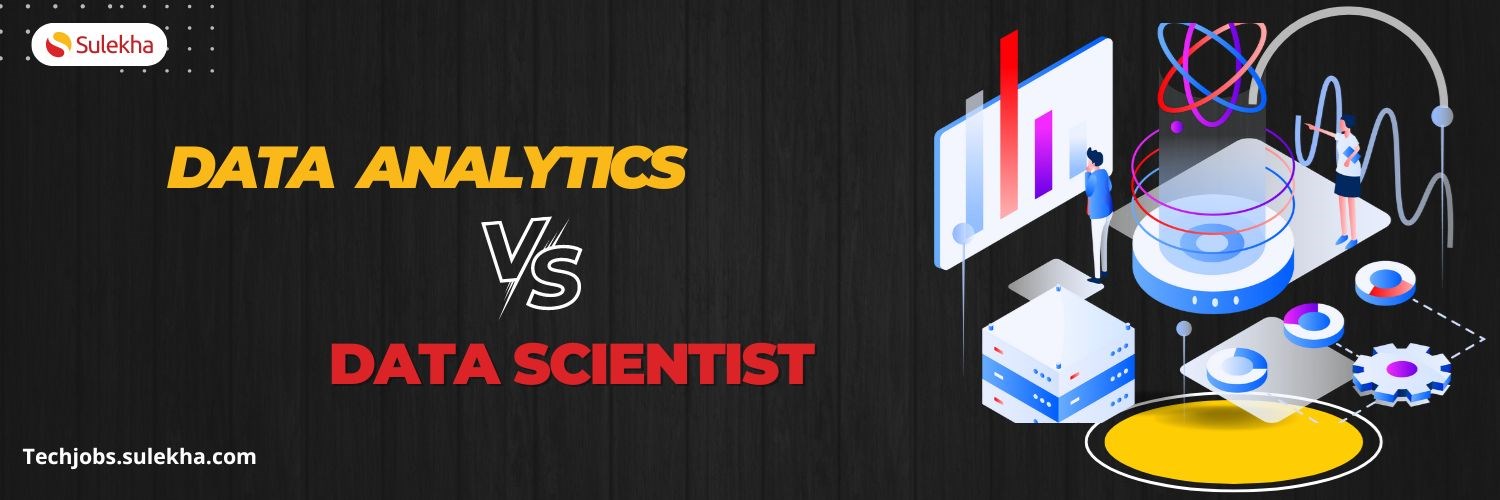
Overview of data analytics VS data scientist
"Discover the key differences between data analytics and data science, explore top courses, job roles, salary expectations, and essential tools to build a successful career in these fields."
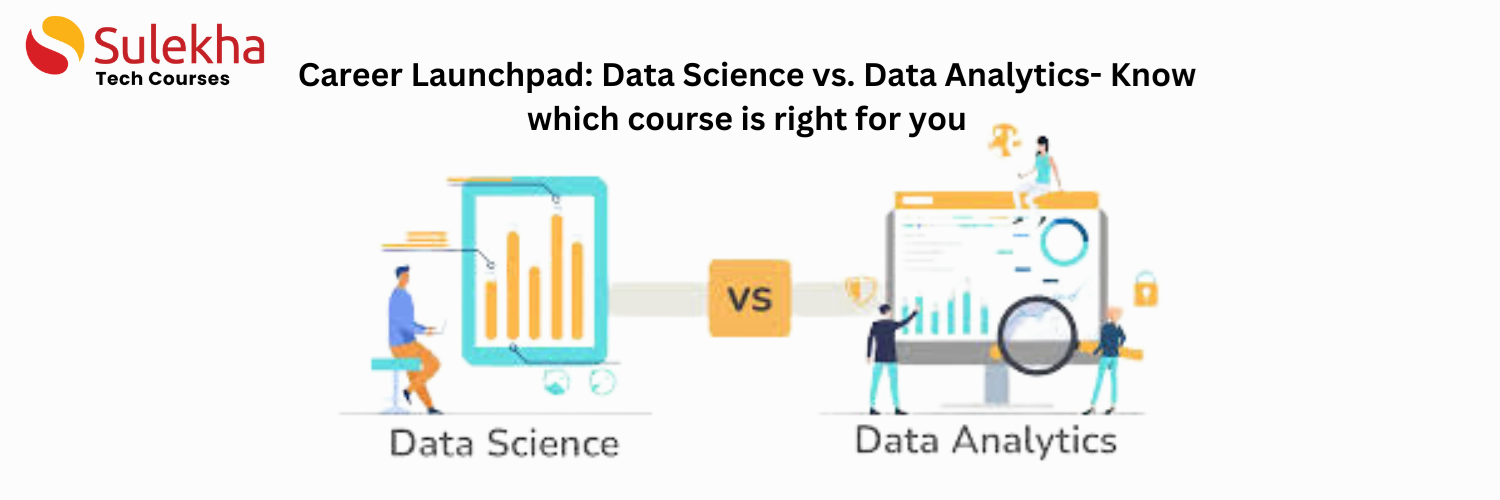
Career Launchpad: Data Science vs. Data Analytics- Know which course is right for you
Discover the key differences between Data Science and Data Analytics to choose the right course for your career. Explore roles, curriculum, salaries, and future prospects in this comprehensive guide.

What are Algorithms?
Discover the fundamentals of algorithms and data structures, their characteristics, types, and their crucial role in problem-solving and programming efficiency.

TEN ENTRY LEVEL JOBS IN IT FOR FRESHERS
Explore ten entry-level IT jobs for freshers, including roles like Help Desk Technician and Cloud Engineer, that require no prior experience but foundational IT knowledge. Discover exciting career paths in the technology sector that offer growth and

What is statistics?
Discover the basics of statistics, including its major types—descriptive and inferential—and their importance in data analysis and prediction.

Twelve High Paying Jobs in New York City
Uncover twelve high-paying jobs in New York City, including roles like data scientist and public relations manager. Learn about their responsibilities and salary ranges.

What is Linear Algebra?
Discover the importance of linear algebra in various fields like data science, economics, and medicine. Understand its applications and why it's an essential skill for students and professionals alike.

TEN ENTRY LEVEL JOBS IN IT FOR FRESHERS
Discover ten entry-level IT jobs perfect for freshers, offering exciting career opportunities and a pathway to success in the tech industry.
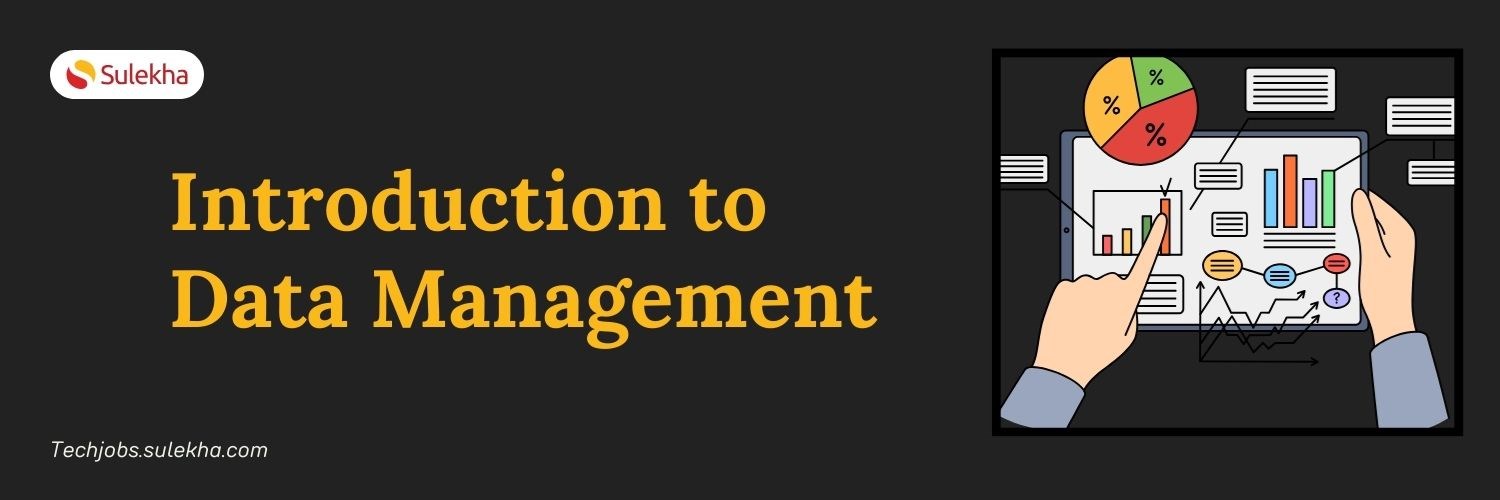
What is data management?
In this blog, we have covered what is data management, Data management process, and types of data management.
Latest blogs on technology to explore
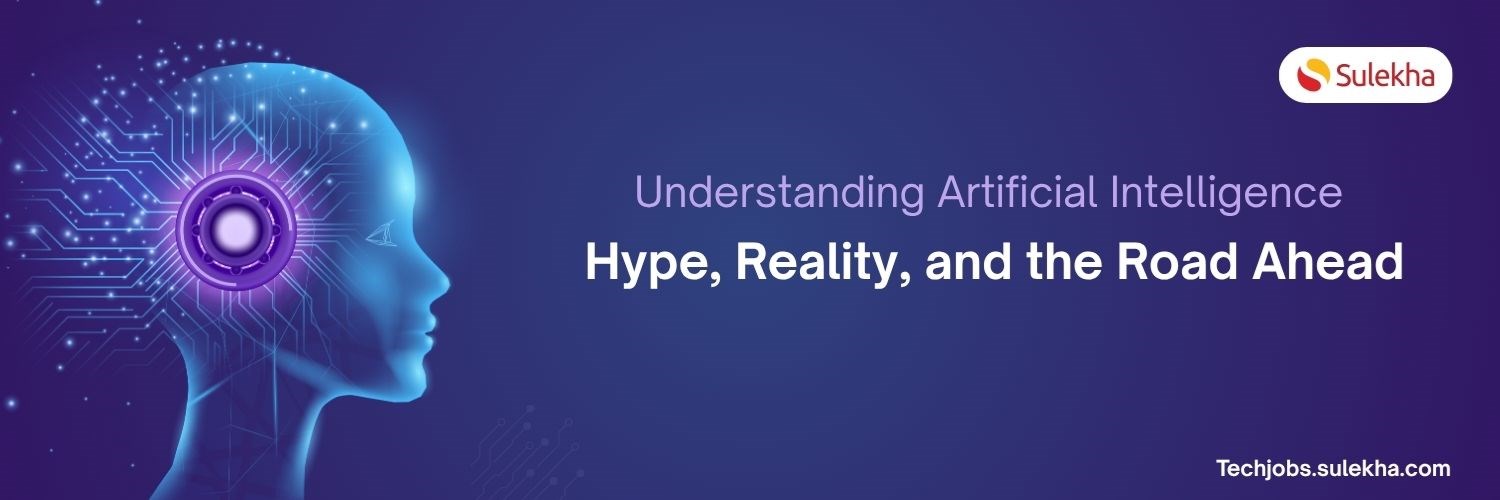
Understanding Artificial Intelligence: Hype, Reality, and the Road Ahead
Explore the reality of Artificial Intelligence (AI) — its impact, how it works, and its potential risks. Understand AI's benefits, challenges, and how to navigate its role in shaping industries and everyday life with expert training programs

How Much Do Healthcare Administrators Make?
Discover how much healthcare administrators make, the importance of healthcare, career opportunities, and potential job roles. Learn about salary ranges, career growth, and training programs with Sulekha to kickstart your healthcare administration jo

How to Gain the High-Income Skills Employers Are Looking For?
Discover top high-income skills like software development, data analysis, AI, and project management that employers seek. Learn key skills and growth opportunities to boost your career.
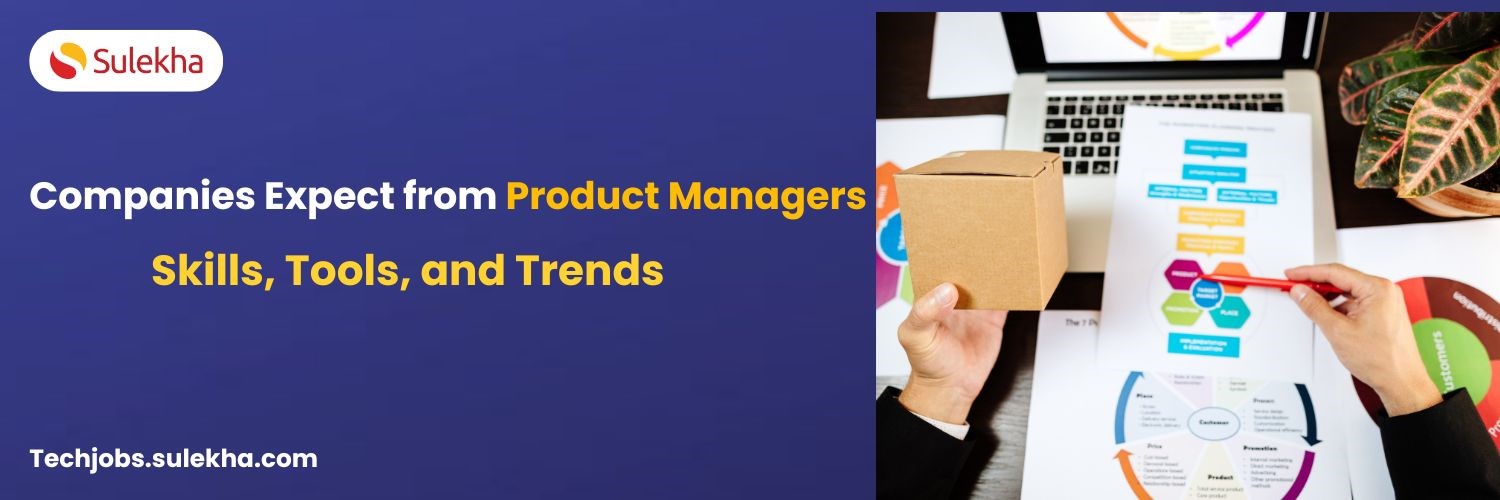
What Companies Expect from Product Managers in 2025: Skills, Tools, and Trends
Explore what companies expect from Product Managers in 2025, including essential skills, tools, certifications, and salary trends. Learn how to stay ahead in a rapidly evolving, tech-driven product management landscape.

Breaking Into AI Engineering: Skills, Salaries, and Demand in the US
Discover how to break into AI engineering with insights on essential skills, salary expectations, and rising demand in the US. Learn about career paths, certifications, and how to succeed in one of tech’s fastest-growing fields.

Cybersecurity Training: Powering Digital Defense
Explore top cybersecurity training programs in the USA to meet rising demand in digital defense. Learn about certifications, salaries, and career opportunities in this high-growth field.

Why Pursue Data Science Training?
Empower your career in a data-driven world. Learn why data science training is crucial for high-demand jobs, informed decisions, and staying ahead with essential skills.

What Does a Cybersecurity Analyst Do? 2025
Discover the vital role of a Cybersecurity Analyst in 2025, protecting organizations from evolving cyber threats through monitoring, threat assessment, and incident response. Learn about career paths, key skills, certifications, and why now is the be

Artificial intelligence in healthcare: Medical and Diagnosis field
Artificial intelligence in healthcare: Medical and Diagnosis field

iOS 18.5 Is Here: 7 Reasons You Should Update Right Now
In this blog, we shall discuss Apple releases iOS 18.5 with new features and bug fixes